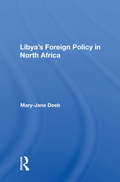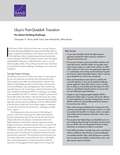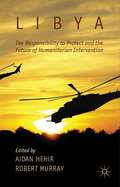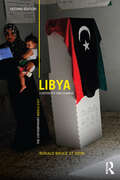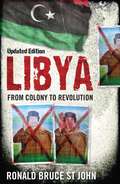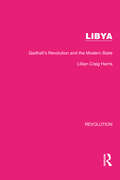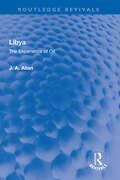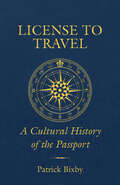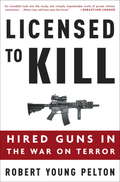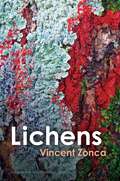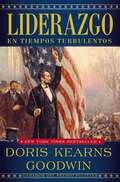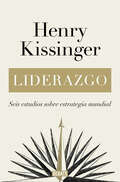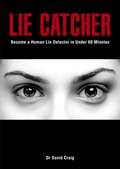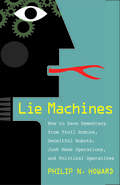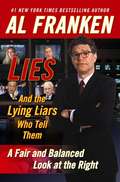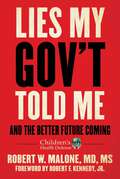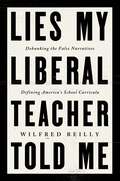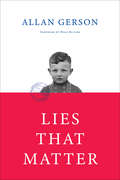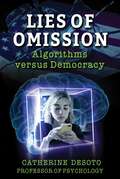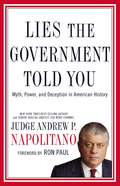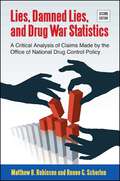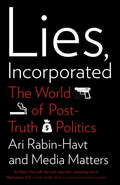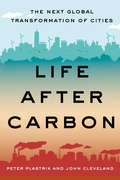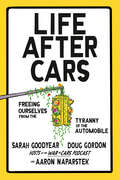- Table View
- List View
Libya's Foreign Policy In North Africa
by Mary-jane DeebSince 1969 when Colonel Mu'ammar al-Qadhdhafi came to power through a military coup, Libya has been the focus of a great deal of attention. Its experiments with nation building have been viewed with curiosity and its foreign policy with dismay by Western analysts. Much has been written to explain Libya's international and domestic behavior, but des
Libya's Post-Qaddafi Transition: The Nation-Building Challenge
by Keith Crane Christopher S. Chivvis Jeffrey Martini Peter MandavilleA year after Qaddafi's death, the light-footprint approach adopted for Libya's postwar transition is facing its most serious test. Security, the political transition, and economic development all present challenges. But if Libya's transitional authorities and the international community handle this issue set adroitly, Libya could still emerge as a positive force for democratic stability in North Africa and a valuable partner against al-Qaeda.
Libya, the Responsibility to Protect and the Future of Humanitarian Intervention
by Aidan Hehir Robert MurrayThis book critically analyses the 2011 intervention in Libya arguing that the manner in which the intervention was sanctioned, prosecuted and justified has a number of troubling implications for the both the future of humanitarian intervention and international peace and security.
Libya: Continuity and Change (The Contemporary Middle East #No. 33)
by Ronald Bruce St John Ronald Bruce St JohnRetaining the conceptual framework of the first edition through emphasis on the dual themes of continuity and change, the second edition of Libya is revised and updated to include discussion of key developments since 2010, including: The February 17 Revolution and the death of Muammar al-Qaddafi. The political process which evolved in the course of the February 17 Revolution and led to General National Congress elections in July 2012, Constitutional Assembly elections in February 2014, and House of Representative elections in June 2014. Post-Qaddafi economic policy from the National Transitional Council through successive interim transitional governments. Post-Qaddafi foreign policy. The on-going process of drafting a new constitution which will be followed by the election of a Parliament and a President. Providing a comprehensive overview of the Libyan uprising, seen to be the exception to the Arab Spring, and highlighting the issues facing contemporary Libya, this book is an important text for students and scholars of History, North Africa and the Middle East as well as the non-specialist with an interest in current affairs.
Libya: From Colony to Revolution (Short Histories Ser.)
by Ronald Bruce St JohnSince Qaddafi&’s ousting in 2011, Libya has been beset by instability and conflict. To understand the tumultuous state of the country today, one must look to its past. With great clarity and precision, renowned regional expert Ronald Bruce St John examines Libya&’s long struggle to establish its political and economic identity amidst the interference of external actors keen to exploit the country&’s strategic importance. This authoritative history spans the time of the early Phoenician and Greek settlements, colonization by Mussolini&’s Italy, Qaddafi&’s four decades of rule and, in this updated edition, the internal rivalries that have dominated the country in the aftermath of the Arab Spring. Essential reading for those seeking a greater understanding of this complex North African state, Libya: From Colony to Revolution is an insightful history, rich in detail and analysis.
Libya: Qadhafi's Revolution and the Modern State (Routledge Library Editions: Revolution #16)
by Lillian Craig HarrisThis book, first published in 1986, provides a comprehensive look at the social, cultural, political and economic forces that shaped Libya following the 1969 revolution. Libya’s political system under Qadhafi’s Third Universal Theory is examined, as are the power structures – military, tribal, economic and religious.
Libya: The Experience of Oil (Routledge Revivals)
by J A AllanFirst published in 1981, Libya: The Experience of Oil provides a comprehensive overview of Libya’ s socio-economic development since the reform of 1961. It reviews Libya’s oil endowment and draws attention to the deficiencies in the country’s renewable natural resources and in the availability of unskilled labour and trained professional staff. The absorption of oil wealth after 1961 is shown to have been severely constrained by poor factor endowment in land and labour resources. The book shows that by end of the 1970s there had been a significant redistribution of wealth along with a reorganization of the economy, such that almost all production, distribution and resources were under public control. A recurring feature observed in this pattern of change is that rates of investment, sectoral allocations to the development spending, improvement in the standard of living and the level of social service provision advanced at a constant rate after oil and that the revolution had little impact on the rate of improvement in the development indicators. This is book is an essential read for scholars and researchers of African studies, African politics, geopolitics and international relations.
License Plate Readers for Law Enforcement: Opportunities and Obstacles
by Tom Latourrette James M. Anderson Keith Gierlack Shara Williams Lauren A. Mayer Johanna ZmudBecause license plate reader (LPR) technology is relatively new in the United States, opportunities and obstacles in its use in law enforcement are still under exploration. To examine issues about this technology, RAND conducted interviews with law enforcement personnel, police officers, and others responsible for procuring, maintaining, and operating the systems.
License to Travel: A Cultural History of the Passport
by Patrick BixbyThis surprising global history of an indispensable document reveals how the passport has shaped art, thought, and human experience while helping to define the modern world. Narrow escapes and new starts, tearful departures and hopeful arrivals, unwanted scrutiny in the backrooms of officialdom: some of our most memorable experiences involve a passport. In License to Travel, Patrick Bixby examines the passports of artists and intellectuals, ancient messengers and modern migrants to reveal how these seemingly humble documents implicate us in larger narratives about identity, mobility, citizenship, and state authority. This concise cultural history takes the reader on a captivating journey from pharaonic Egypt and Han-dynasty China to the passport controls and crowded refugee camps of today. Along the way, the book connects intimate stories of vulnerability and desire with vivid examples drawn from world cinema, literature, art, philosophy, and politics, highlighting the control that travel documents have over our bodies as we move around the globe. With unexpected discoveries at every turn, License to Travel exposes the passport as both an instrument of personal freedom and a tool of government surveillance powerful enough to define our very humanity.
Licensed to Kill: Privatizing the War on Terror
by Robert Young PeltonRobert Young Pelton first became aware of the phenomenon of hired guns in the War on Terror when he met a covert team of contractors on the Afghanistan/Pakistan border in the fall of 2003. Pelton soon embarked on a globe-spanning odyssey to penetrate and understand this shadowy world, ultimately delivering stunning insights into the way private soldiers are used.Enter a blood-soaked world of South African mercenaries and tribal fighters backed by ruthless financiers. Drop into Baghdad’s Green Zone, strap on body armor, and take a daily high-speed ride with a doomed crew of security contractors who dodge car bombs and snipers just to get their charges to the airport. Share a drink in a chic hotel bar with wealthy owners of private armies who debate the best way to stay alive in war zones.Licensed to Kill spans four continents and three years, taking us inside the CIA’s dirty wars; the brutal contractor murders in Fallujah and the Alamo-like sieges in Najaf and Al Kut; the Deep South contractor training camps where ex–Special Operations soldiers and even small town cops learn the ropes; the contractor conventions where macho attendees swap bullet-punctuated tales and discuss upcoming gigs; and the grim Central African prison where contractors turned failed mercenaries pay a steep price.The United States has encouraged the use of the private sector in all facets of the War on Terror, placing contractors outside the bounds of functional legal constraints. With the shocking clarity that can come only from firsthand observation, Licensed to Kill painstakingly deconstructs the most controversial events and introduces the pivotal players. Most disturbingly, it shows that there are indeed thousands of contractors—with hundreds more being produced every month—who’ve been given a license to kill, their services available to the highest bidder.From the Hardcover edition.
Lichens: Toward a Minimal Resistance
by Vincent ZoncaCovering almost 8 percent of the earth's terrain, lichens are living beings which are familiar to everyone, known to no one. They are one of those organisms that seem to offer nothing to hold our gaze. But the more time we spend with lichens, the more they reveal their beauty, their mysteries and their strange power of attraction. Part-algae and part-fungus, lichens call into question our customary ways of classifying forms of life, and allow us to conceive of an ecology that is no longer based on distinctions between nature and culture, urban and rural, competition and cooperation. The result of several years of investigation carried out on several different continents, this remarkable book offers an original, radical, and, like its subject matter, symbiotic reflection on this common but mostly invisible form of life, blending cultures and disciplines, drawing on biology, ecology, philosophy, literature, poetry, even graphic art. What if lichens were at the heart of some of the most pressing and topical questions of our day? Does the fact that they can live everywhere, even in very harsh environments, that they persist when almost all other traces of life have disappeared, mean that, despite their fragility, lichens are a force of resistance? After reading this book you will never see lichens, or the world, in the same way again.
Liderazgo: En tiempos turbulentos
by Doris Kearns Goodwin¿Los líderes nacen o se hacen? ¿De dónde viene la ambición? ¿Cómo afecta la adversidad al crecimiento del liderazgo? ¿El líder hace a los tiempos o los tiempos hacen al líder? En Liderazgo: en tiempos turbulentos, Goodwin recurre a los cuatro presidentes que ha estudiado más de cerca –Abraham Lincoln, Theodore Roosevelt, Franklin D. Roosevelt y Lyndon B. Johnson (en derechos civiles)–, para mostrar cómo reconocieron las cualidades de liderazgo dentro de sí mismos y fueron reconocidos como líderes por parte de otros. Al recordar sus primeros pasos en la vida pública, los encontramos en un momento en que sus caminos estaban llenos de confusión, temor y esperanza a la vez.Liderazgo: en tiempos turbulentos, cuenta la historia de cómo todos ellos chocaron con drásticos cambios que interrumpieron sus vidas y amenazaron con destruir sus ambiciones para siempre. Sin embargo, todos emergieron preparados para enfrentar las situaciones y dilemas de sus tiempos.Ningún patrón común describe la trayectoria del liderazgo. Aunque se distinguieron por sus orígenes, habilidades y temperamento, estos hombres compartían una ambición feroz y una resiliencia profunda que les permitía superar dificultades inusuales. En su mejor momento, los cuatro fueron guiados por un sentido de propósito moral. En momentos de gran desafío, pudieron utilizar sus talentos para engrandecer las oportunidades y las vidas de los demás.
Liderazgo: Seis estudios sobre estrategia mundial
by Henry KissingerHenry Kissinger analiza cómo seis líderes extraordinarios, a los que conoció de cerca, dieron forma a sus países y al mundo que hoy conocemos. «Pretende ser un manual para los líderes de hoy y de mañana».The New Statesman Henry Kissinger, uno de los principales estrategas políticos del siglo xx, analiza en este nuevo libro los perfiles de seis de los líderes mundiales más fascinantes e influyentesdel pasado reciente: Konrad Adenauer, Charles de Gaulle, Richard Nixon, Anwar Sadat, Lee Kuan Yew y Margaret Thatcher. Todos ellos se formaron en un periodo en el que las instituciones establecidas se derrumbaban en Europa, las estructuras coloniales daban paso a estados independientes en Asia y África y hubo que crear un nuevo orden internacional a partir de los vestigios del anterior.Kissinger repasa el camino de De Gaulle para reconstruir la Francia postimperial, la rehabilitación llevada a cabo por Adenauer de una Alemania devastada por la guerra o el éxito del experimento de la pequeña ciudad Estado de Lee Kuan Yew en Singapur. El análisis de estos procesos sirve para mostrar las estrategias de gobierno de unos líderes que, impulsados por un alto sentido de Estado, se propusieron posicionar a sus respectivos países en el centro del tablero político mundial.La perspectiva del autor no tiene parangón: es la de un historiador de primer orden que conoció y estuvo implicado en los acontecimientos que se relatan. La experiencia como alto representante público, el conocimiento personal de los protagonistas y la carrera política de Kissinger enriquecen un libro que atestigua cómo la combinación del carácter de los personajes y las circunstancias de cada situación es lo que acaba dando forma a la historia. La crítica ha dicho:«Siempre vale la pena escuchar a este sorprendente testigo de la historia».Simon Heffer, The Telegraph Book of the Year «Un estudio vital del poder en acción».Publishers Weekly «Según Kissinger, sus seis protagonistas demuestran que el liderazgo transformador de las grandes personas es más importante que las fuerzas impersonales a la hora de forjar la historia».The Times De Orden mundial se dijo:«El mejor Kissinger, con su inimitable combinación de erudición».Hillary Clinton «Un fascinante e instructivo recorrido global por la búsqueda de la armonía. La clave del realismo en las relaciones internacionales de Kissinger, y el tema de este libro magistral, es que la humildad es importante no solo para las personas, sino también para los países, incluido Estados Unidos».Walter Isaacson «Un magnífico ensayo sobre el desorden político internacional».Lluis Bassets, Babelia
Lie Catcher: Become a Human Lie Detector in Under 60 Minutes
by Dr. David CraigInternational undercover expert and criminologist Dr David Craig gives us an easy-to-read, light-hearted guide that demonstrates through practical examples how to apply lie detecting skills in our day-to-day lives. From bargaining, making a purchase, negotiating a business contract, dealing with children to identifying infidelity, he delivers simple but effective tips and techniques we can all use to see behind the facade and get to the truth.
Lie Machines: How to Save Democracy from Troll Armies, Deceitful Robots, Junk News Operations, and Political Operatives
by Philip N. HowardTechnology is breaking politics—what can be done about it? Artificially intelligent &“bot&” accounts attack politicians and public figures on social media. Conspiracy theorists publish junk news sites to promote their outlandish beliefs. Campaigners create fake dating profiles to attract young voters. We live in a world of technologies that misdirect our attention, poison our political conversations, and jeopardize our democracies. With massive amounts of social media and public polling data, and in-depth interviews with political consultants, bot writers, and journalists, Philip N. Howard offers ways to take these &“lie machines&” apart. Lie Machines is full of riveting behind-the-scenes stories from the world&’s biggest and most damagingly successful misinformation initiatives—including those used in Brexit and U.S. elections. Howard not only shows how these campaigns evolved from older propaganda operations but also exposes their new powers, gives us insight into their effectiveness, and explains how to shut them down.
Lies (And the Lying Liars Who Tell Them) A Fair and Balanced Look at the Right
by Al FrankenA comedian debunks right-wing rhetoric and shows the right's hypocrisy.
Lies My Gov't Told Me: And the Better Future Coming (Children’s Health Defense)
by Robert W. Malone**AS SEEN ON TUCKER CARLSON TODAY AND THE JOE ROGAN EXPERIENCE**A guide for the times—breaking down the lies about COVID-19 and shedding light on why we came to believe them. When he invented the original mRNA vaccine technology as a medical and graduate student in the late 1980s, Robert Malone could not have imagined that he would become a leader in a movement to expose the dangers of mRNA vaccines that billions of people have received—too often without being informed of the risks. For voicing opposition to the &“mainstream&” narrative, Dr. Robert Malone was censored by Big Tech and vilified by the media. But he continues to speak out and alert the world to the web of lies that we have all experienced. From vaccine safety and effectiveness to early treatments like ivermectin, to lockdowns, masks, and more, Dr. Malone is the signature dissident voice telling the other side of the story about COVID, the role of corporate media, censorship, propaganda, and the brave new world of transhumanism promoted by the World Economic Forum and its acolytes. What effect did the COVID policies have on lives, livelihoods, and democracies? How is it possible that the lies spread by governments would persist, and that our institutions would fail to correct them? Lies My Gov&’t Told Me takes a hard look at these questions and illustrates how data, information, and psychology have been distorted during the pandemic. Governments intentionally weaponized fear to mold behavior. The media smeared anyone who objected to the narrative. And Big Pharma—aligned with larger globalist interests exemplified by the likes of Bill Gates and the World Economic Forum—had captured the agencies that are supposed to regulate it long before the pandemic began. Dr. Malone explores these perverse connections between Pharma, government, and media, and tells us what can be done about it. With contributed chapters from other leading thinkers, such as Dr. Paul Marik and Professor Mattias Desmet, and drawing upon history, psychology, and economics, Lies My Gov&’t Told Me looks at COVID from numerous angles. Never satisfied with a simple answer or easy solution, Dr. Malone proposes multiple action plans for a better future. Dr. Malone calls on each of us to find our own solutions, our own ways to resist the control of fascist, corporatist, and totalitarian overlords. If we are to step out of the darkness—toward a world that defends the principles of the Constitution, upholds individual rights, and honors free speech—we all must play a part in the transition.
Lies My Liberal Teacher Told Me: Debunking the False Narratives Defining America's School Curricula
by Wilfred ReillyA college professor debunks the myths that have infiltrated America's school curricula.In 1995, James W. Loewen penned the classic work of criticism Lies My Teacher Told Me, a left-leaning corrective that addressed much of what was sanitized and omitted from American history books.But in the decades that followed, false leftist narratives—as wrong as those they supplanted—have come to dominate American academia and education. Now, in the same spirit but updated for 2024, Wilfred Reilly demolishes the scholastic myths propagated by the left, uncovers fresh angles on “established” events, and turns what we think we know about history upside down. Among the popular lies he debunks:“The ‘Red Scare’ was a moral panic that caught no commies”“Native Americans were peaceful people who spent all day dancing”“European colonialism was—empirically—a no-good, terrible, very bad thing” “The racist ‘Southern Strategy’ turned the South Republican”“The Vietnam War was unpopular and pointless”Lies My Liberal Teacher Told Me sets the record straight on many of these myths, explaining that there actually were communists in Hollywood; that many Native American tribes were cannibals, owned slaves and made them march the Trail of Tears with them; and that history, while almost always bad for Black Americans, was much worse for all of us than we tend to think it was. Smart, irreverent, and deeply researched, Lies My Liberal Teacher Told Me will revolutionize your understanding of history and reveal a new and refreshing way to teach and think about the past.
Lies That Matter: A federal prosecutor and child of Holocaust survivors, tasked with stripping US citizenship from aged Nazi collaborators, finds himself caught in the middle
by Allan GersonThe true story of a DOJ prosecutor’s complicated quest to deport Nazis: “The lessons that Mr. Gerson learns, and shares, could not be more timely.” —Seth Waxman, former US Solicitor GeneralAs the son of Holocaust survivors, federal prosecutor Allan Gerson thought his professional assignment to investigate and deport those who persecuted his family and others like them would make his parents proud. But their reaction was not what he expected. This is his memoir of the experience—and the complex emotions and questions it provoked.“It takes a young attorney whose Holocaust survivor parents and uncle had to lie in order to gain admittance into the U.S. to recognize the double-edged dangers of pursuing aging Nazi functionaries with the blunt instruments of American immigration law. Can the same laws be turned against his parents and other Jews like them? Allan Gerson tells the gripping story of his two years at the Department of Justice office charged with investigating and deporting aging Nazis living quietly in our midst. His interrogation of suspected perpetrators forces him to uncover secrets of his family and other anguished victims that he never wanted to know . . . This narrative reads like a bildungsroman, a coming of age story of a lawyer who went on to seek American legal remedies for historic crimes and injustices committed elsewhere.” —Samuel Norich, President, The Forward
Lies of Omission: Algorithms versus Democracy
by Catherine DeSotoA lie of omission—withholding needed information to correct a false belief. There is a sharp and more hostile divide emerging in the United States. The shift is documented by various polls, and the speed of the change is alarming. There are certainly contributing factors, but one factor is unique to the contemporary era: receiving the majority of our information via social media experiences. Media algorithms, and to some extent overt censorship, serve users curated content that is unlike what their neighbors receive.Lies of Omission brings together various perspectives on the causes and effects of the divided information streams. Psychology and neuroscience, combined with some historical jurisprudence, are woven together to spell out the dangers of the modern social media experience. Importantly, the human response can be understood as rooted in our psychology and neurochemistry. In part two of the book, eight hot button issues that have provoked deep divisions among American citizens are presented as well-researched, opposing-view chapters with a goal to lay bare the extent of the disinformation gap that we are living in. With the rise of ephemeral smart media, and the associated displacement of the permanently printed word, it is rare to have a clear idea of what persons who do not share our opinions actually believe, or why.The decimation of communal information sources is nearly complete. What can one do? One concrete step is to turn some of your attention away from curated, impermanent news and read a book. Read this book. Dr. Catherine DeSoto spells out why it is worth our time to be informed regarding the issues we care about: something your phone&’s curated media will never do for you. Open your mind to the quaint idea that one is not informed unless one understands the opposing view. Surprising all-new research regarding the political divide and the pandemic is included. Together with over 150 references, this book will be the definitive source documenting the effects of the media algorithm revolution.
Lies the Government Told You: Myth, Power, and Deception in American History
by Andrew P. NapolitanoCenturies of government deception have suspended our freedom and replaced it with a mythology rich in the ideals we are promised but do not actually experience. The government's lies have become our country's heritage, passed down generationally and accepted over time as status quo. We allow our leaders to regulate, under false pretenses, every area of our supposedly free lives: What we eat, how our money is spent, how we protect ourselves. The basic tenets of living in a free society--the primacy of the individual and limited government-- are violated routinely and with little objection from those most affected. Judge Napolitano traces the deterioration of American freedom year by year, event by event, from the birth of the U.S. government to the economic and military crises of today. He illustrates how this distorted interpretation of government translates to loss for Americans--loss of life, loss of property, loss of freedom. The cost is staggering. Amid the bleak revelation is a call to action. Judge Napolitano offers a blueprint to salvage our freedom and restore the government to its intended role as an instrument to protect the freedoms of the people.
Lies, Damned Lies, and Drug War Statistics, Second Edition: A Critical Analysis of Claims Made by the Office of National Drug Control Policy
by Matthew B. Robinson Renee G. ScherlenFirst published in 2007, Lies, Damned Lies, and Drug War Statistics critically analyzed claims made by the Office of National Drug Control Policy (ONDCP), the White House agency of accountability in the nation's drug war since 1989, as found in the six editions of the annual National Drug Control Strategy between 2000 and 2005. In this revised and updated second edition of their critically acclaimed work, Matthew B. Robinson and Renee G. Scherlen examine seven more recent editions (2006–2012) to once again determine if ONDCP accurately and honestly presents information or intentionally distorts evidence to justify continuing the drug war. They uncover the many ways in which ONDCP manipulates statistics and visually presents that information to the public. Their analysis demonstrates a drug war that consistently fails to reduce drug use, drug fatalities, or illnesses associated with drug use; fails to provide treatment for drug-dependent users; and drives up the prices of drugs. They conclude with policy recommendations for reforming ONDCP's use of statistics, as well as how the nation fights the war on drugs.
Lies, Incorporated: The World of Post-Truth Politics
by Media Matters for America Ari Rabin-HavtIn today's post-truth political landscape, there is a carefully concealed but ever-growing industry of organized misinformation that exists to create and disseminate lies in the service of political agendas. Ari Rabin-Havt and Media Matters for America present a revelatory history of this industry--which they've dubbed Lies, Incorporated--and show how it has crippled legislative progress on issues including tobacco regulation, public health care, climate change, gun control, immigration, abortion, and same-sex marriage. Eye-opening and indispensable, Lies, Incorporated takes an unflinching look at the powerful network of politicians and special interest groups that have launched coordinated assaults on the truth to shape American politics.From the Trade Paperback edition.
Life After Carbon: The Next Global Transformation of Cities
by John Cleveland Peter PlastrikIn Life After Carbon urban sustainability consultants Pete Plastrik and John Cleveland present a global pattern of reinvention from the stories of 25 "innovation lab" cities—from Copenhagento Melbourne. Plastrik and Cleveland show that four transformational ideas are driving urban climate innovation around the world: carbon-free advantage, efficient abundance, nature's benefits, and adaptive futures.Life After Carbon presents the new ideas that are replacing the pillars of the modern-city model, converting climate disaster into urban opportunity, and shaping the next transformation of cities worldwide. It will inspire anyone who cares about the future of our cities, and help them to map a sustainable pathforward.
Life After Cars: Freeing Ourselves from the Tyranny of the Automobile
by Doug Gordon Aaron Naparstek Sarah GoodyearFrom the hosts of The War on Cars podcast, a searing indictment of how cars ruin everything—and what we can do to fight backWhen the very first cars rolled off production lines, they were a technological marvel, predicted to make life easier and better for all Americans; yet a hundred years later, that dream is running on empty.Instead of unbounded freedom, the never-ending proliferation of automobiles has delivered a host of costs, among them the demolition of our neighborhoods, towns, and cities to make way for car infrastructure; an epidemic of violent death; countless hours lost in traffic; isolation from our fellow human beings; and the ongoing destruction of the natural world. Globally, SUVs alone now emit more carbon than the nations of Germany, South Korea, or Japan.That&’s why we need Life After Cars. Through historical records, revealing interviews, and unflinching statistics, Sarah Goodyear and Doug Gordon, hosts of the podcast The War on Cars, and former host Aaron Naparstek unpack the scale of damage that cars cause, the forces that have created our current crisis and are invested in perpetuating it, and the way that the fight for better transportation is deeply linked to the fight for a more equitable and just society.Cars as we know them today are unsustainable—but there is hope. Life After Cars will arm readers with the tools they need to implement real, transformative change, from simply raising awareness to taking a stand at public forums. It&’s past time to radically rethink—and shrink—society&’s collective relationship with the automobile. Together, let&’s create a better Life After Cars.
